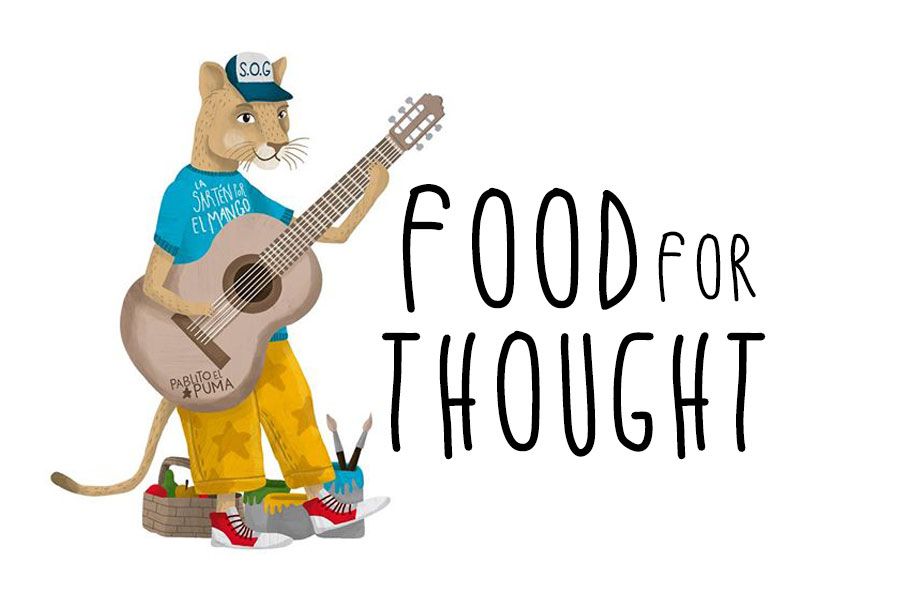On Saturday we delivered our first training session to the members of the Gonet community. Some if which will become our volunteer cooks for Food for Thought. Our nutritionist Yamila had a sick child so wasn’t able to make it, so a nutritionist friend of hers, Roma, who is also happy to take part in the project, took her place. Roma is a wealth of nutritional knowledge and provided a great learning experience for all of those attending. She has a relaxed, approachable manner and spent the first forty five minutes talking about nutrition and taking questions about what she was saying. I loved her enthusiasm and feel that having her as part of the team will be of great benefit to everyone involved.
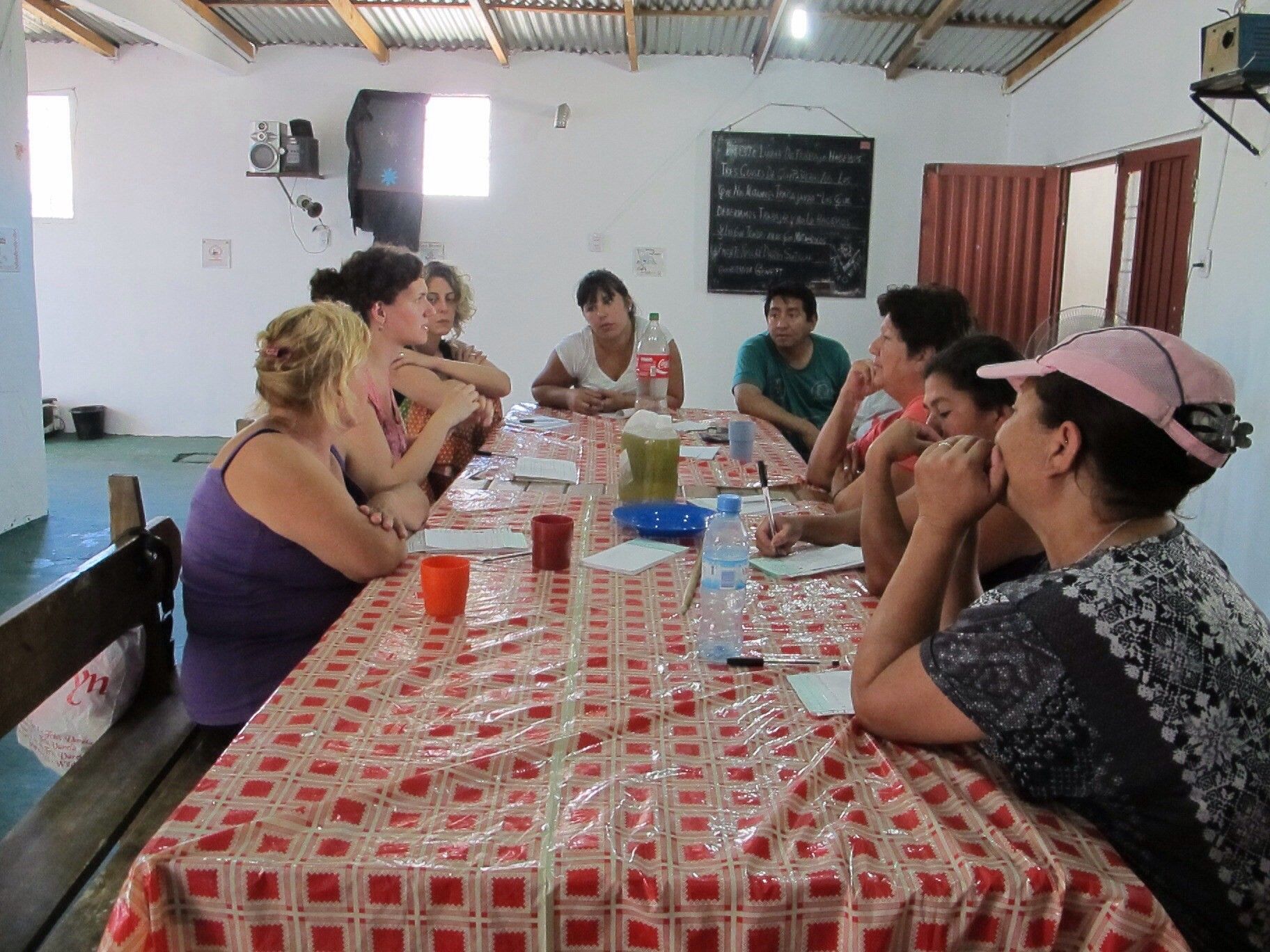
Then we jumped into the cooking session. We followed a simple recipe for legume burgers. As you can see from the photos, everyone got their hands dirty. It was our first time using the kitchen for it’s intended purpose (assisting the community) and it felt great! It felt like a real kitchen once we had the colour of vegetables on the wooden table, people with knives and fry pans, and the smell of sautéed onion in the air!


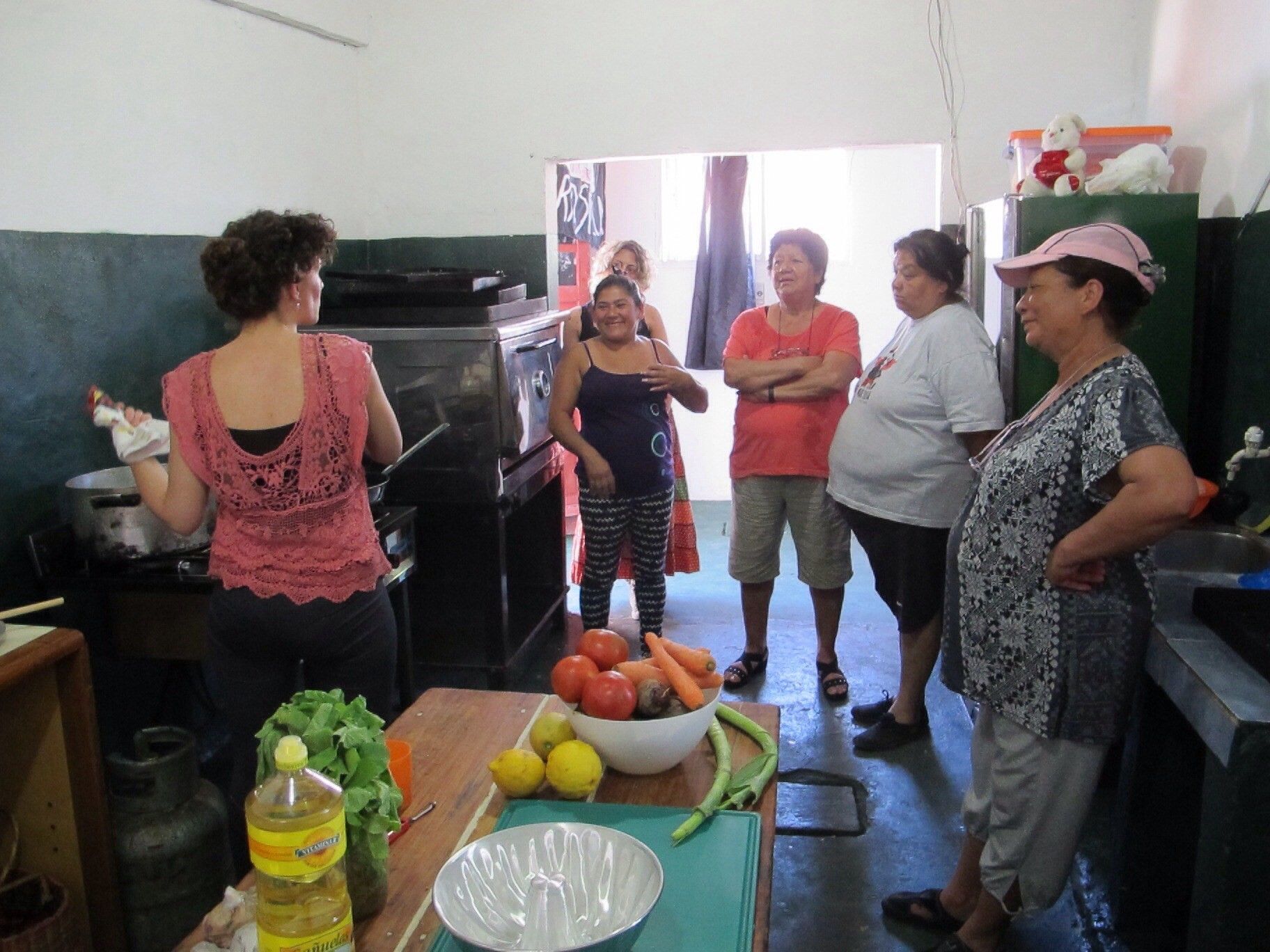
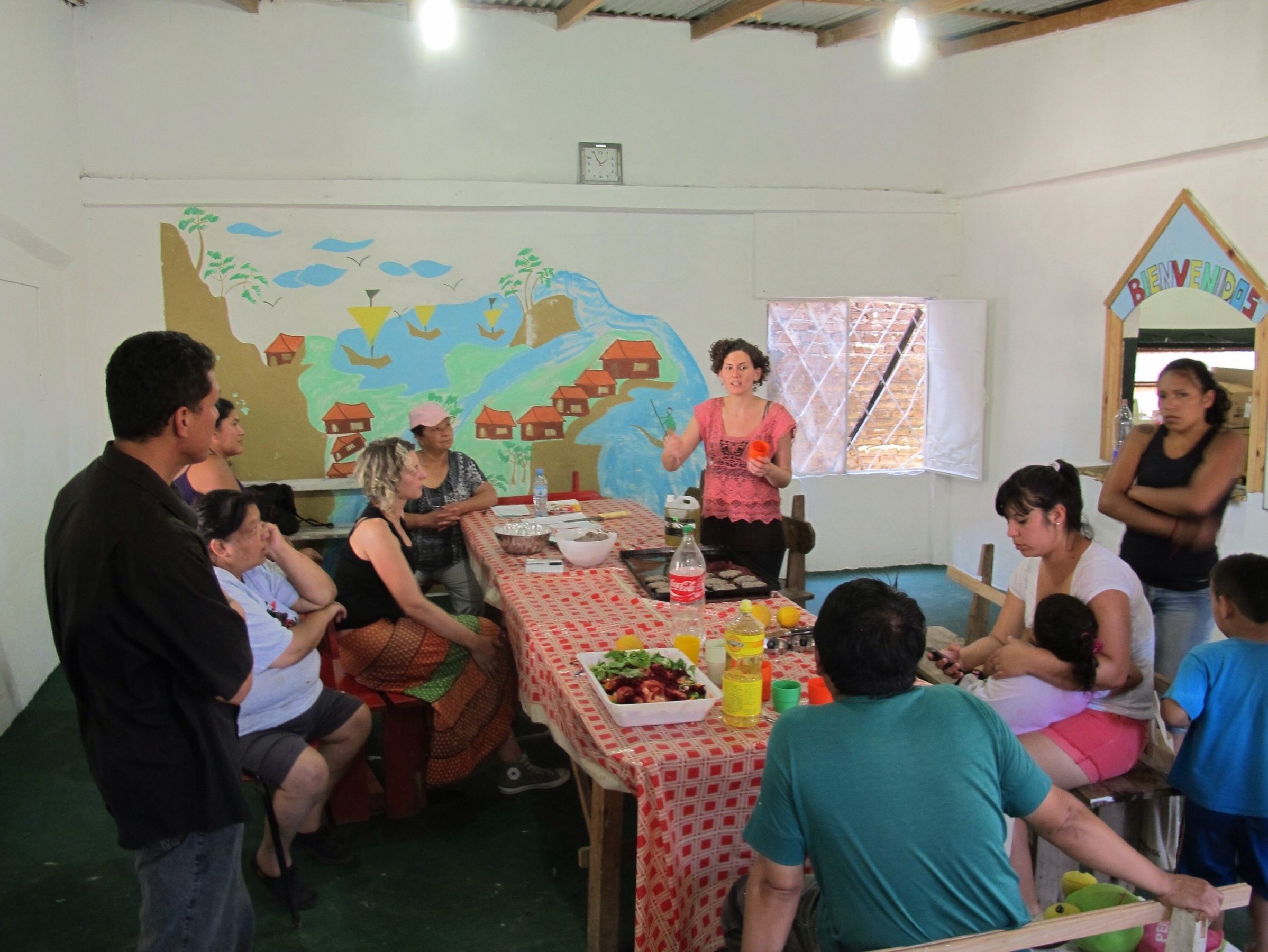
After the cooking was complete we sat down and consumed our delicious creation, sided by a healthy salad. The thing I like about sitting around a table and eating is the discussion that goes along with it. The response from the community members was incouraging. Asking good questions and getting into the whole experience. There was also the other side where one of ladies stated that she would not cook this kind of thing at home and that the children of the area wouldn’t like to eat what we had made. It was a very good point, because these are the kind of problems that we will be faced with. How can we get them to make these recipes at home and how can we get the children to eat the food that we prepare?
A lot of the parents are used to taking a burger patty out of the packet and throwing it in the fry pan for two minutes. Meal complete. The legume burgers that we created are ten times more healthy and full of nutritional value than the burger patties from the packet, but they also take 10 times as long to make. So there is an issue with time. The community members, children included, are also used to flavour packed, oily, salty or sweet foods. These legume burgers have a different flavour profile than that of what they are accustomed to. They had great flavour but compared to a burger paddy are very different, so the kids and parents might not like the food that we are offering. It is a home cooking and eating culture that has been formed over decades that will be extremely hard to crack!
I give the example of coffee because I have had some experience in the area. The espresso coffee culture in Australia and New Zealand came from Italy (by the way, we owe a lot to the Italians for bringing it). Italy has a culture of a dark roasted, strong and bitter brew. What goes hand in hand with a brew such as this is, sugar. The sugar neutralises the bitterness and makes a very nice, sweet and syrupy drink. People are used to this type of coffee. They have become accustomed to it because they have been drinking it that way for decades.
If you offer a high quality, well roasted, lighter roast espresso, without sugar, to a seasoned Italian style coffee drinker, he or she will tell you that it is weak and badly made. It has a very different flavour profile to the other and can be amazing without sugar. The fact of the matter is that a lot more time, effort, science, and money has gone into the lighter roasted coffee, the different flavours that can be tasted are endless and a whole new world of tasting can be explored in this style, but the seasoned Italian style coffee drinker is “used to” the way he or she has been drinking it for years and would take the old style of espresso any day. I’m not saying one is better than the other but it gives the example of how hard it is to change a culture that has been forged over decades. Another thing
to consider is that what also comes with culture is pride, and if someone takes pride in a manor in which they do things it can be very difficult to change.
So, I have no idea how we will go with trying to implant a healthier cooking culture into this community. The health benefits for old and young are great, the impacts on children’s behavioural and cognitive development are great, the social benefits of an imaginative cooking culture are great, but I could just be a idealistic foreigner who thinks he knows best. In saying that, I do know that if we can make a change or ignite a spark that might lead to change in just one person or family, then we have achieved a goal that aligns with our purpose as an organisation, and have been successful. So here lies our motivation.
End result. Saturday in my eyes was a raging success. We engaged the members of the community and put cooking and nutritional information on the plate for community members to consume. From what I could see a feast of healthy food and knowledge was had by all. Judging by reaction and discussion, most if not all took something positive away from the experience, I know I did.
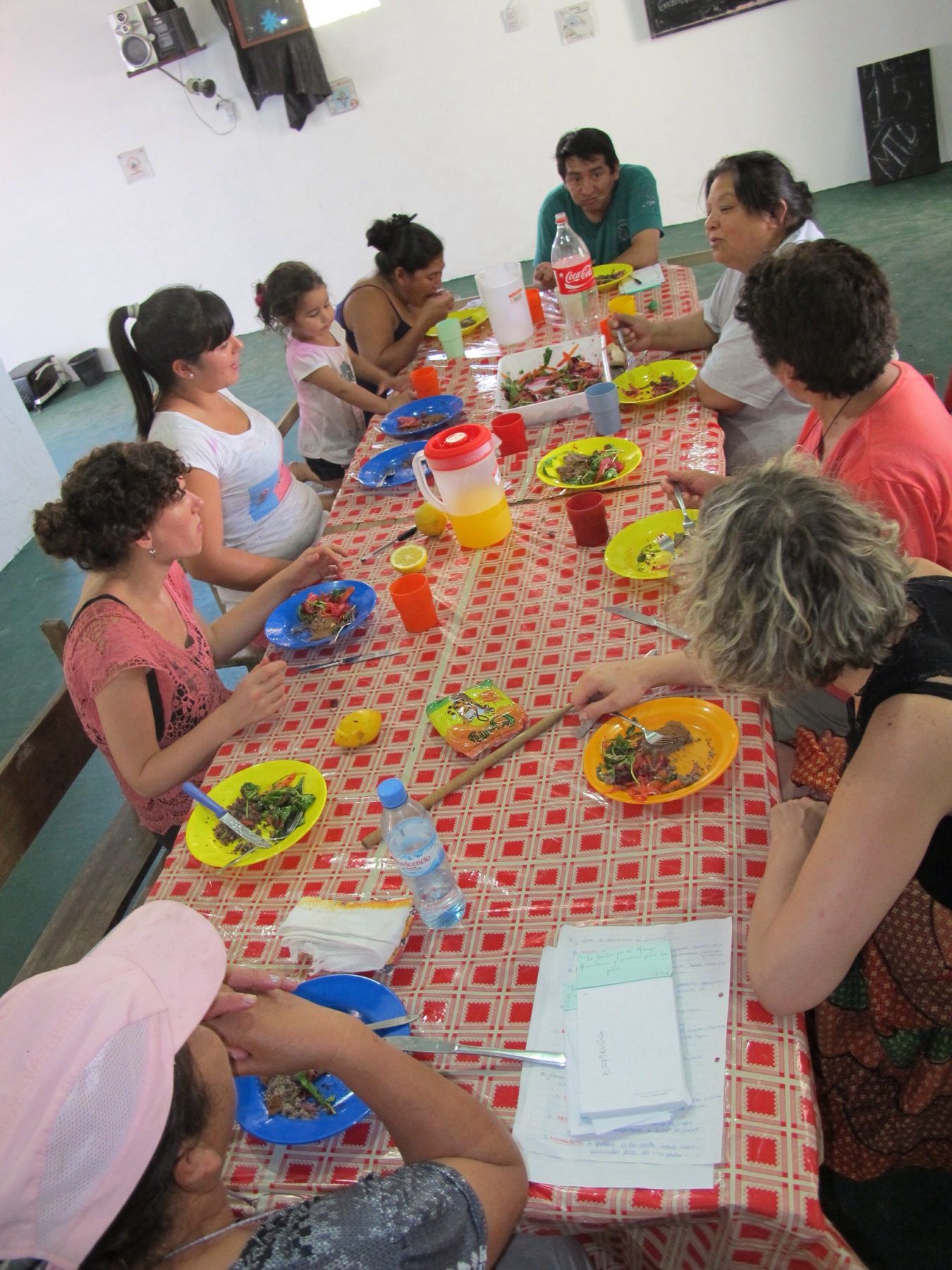
Till next time. Hasta Pronto.
